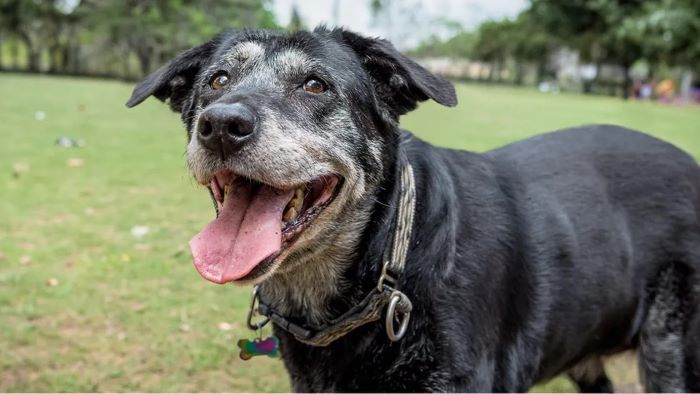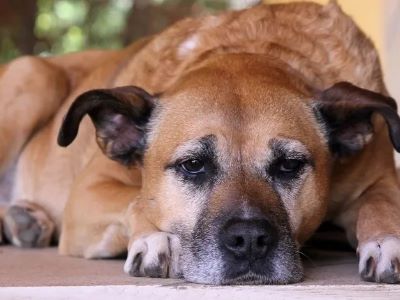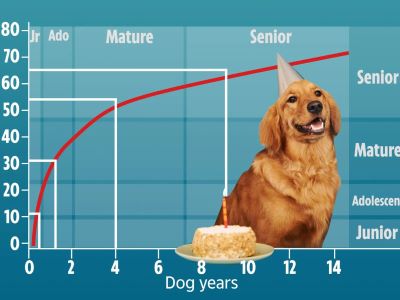If you are a paw parent to a cute little naughty fur baby then you are seeing your baby grow must be delightful at the same must be overwhelming. You can see your dog growing but how do you know that they are ageing? What age is senior dog? And how long will the dog live what is their average lifespan? This question must have bothered you widely.
Through our blog we will provide answers to all your questions, making you aware. So let’s dive deep into this dog ageing calculation to know the exact age of your dog.

What Age Is Senior Dog
Here are the age ranges of different breeds which will make it easy for you to identify the dog’s age[1]:
Small breeds
The small breeds generally weigh up to 20 pounds. They are also widely known as the toy breeds. Their height tends to remain small which makes them the favourable choice as a pet.
The lifespan of this small/toy breed ranges between 8 to 11 years. They mature way early in the beginning stage of their life and grow old slowly.
Medium breed
The medium size breed weighs between 20 to 50 pounds. The average lifespan of these medium-sized breeds ranges between 8 to 10 years.
Large breeds
The large-size breed weighs between 50 to 90 pounds and generally matures at a moderate pace. The average lifespan of the large breed dog ranges between 8 to 9 years.
Giant breeds
The giant breed dog weighs more than 90 pounds and has an average lifespan of 6 to 7 years. They tend to mature quite early as compared to other breeds and grow old early too.
As mentioned by experts in WebMD:
As a rule of thumb, dogs are considered older when they’ve reached half of their life expectancy, says Mark Nunez, DVM, president of the California Veterinary Medical Association from 2009-2010 and owner of a veterinary practice in Van Nuys, Calif.
In general, “little dogs live to about 15 to 20 years of age, while bigger dogs live to about 12 to15 years.,” Nunez says. Bigger dogs are considered older at around six years, and smaller dogs become older at around eight or nine.
Factors Influencing Ageing in Dogs

Here are the factors that influence ageing in dogs:
Diet
According to experts dogs who are fed one meal per day or once a day tend to be healthier than the dogs who are fed frequently. This is because one meal a day prevents obesity, dental issues, gastrointestinal issues and musculoskeletal issues in dogs.
It is not necessary that feeding your dog once a day will only help, you can try feeding your dog the proper nutritional food too. Feeding your dog full nutrition-rich food will help the dog stay fit and active.
Genetics
Genetics of the dog too affects their ageing. The smaller breed lives longer and ages slowly. The average lifespan of the smaller breed is 10-15 years. At the same time, the giant breed dogs tend to live shorter. The average lifespan of the giant breed dogs is 8-13 years. Due to this genetical reason, the giant breed dogs age early.
Health
Senior dogs are prone to health issues, they keep on suffering from illness quite frequently. Arthritis. Dementia, joint issues, kidney failure and many more illnesses easily affect the senior dog.
This health issue restricts the dog from performing daily activities and they need to be kept isolated.
Lifestyle
The lifestyle of the senior dogs is more of forced solitude, they cannot play, run and walk due to the prevailing health issues. Moreover, their digestive system becomes delicate as a result their food options also get limited. This lifestyle makes them stressed and anxious resulting in ageing early.
Human Years vs. Dog Years

Here are the different ways in which the human and dog years are compared:
Traditional calculation
The traditional age calculator method is based on the assumption that one dog year is equal to seven years of human. This means if a dog is one year old then according to human year the age of the dog will be seven years.
This traditional method of dog age calculation is based on the theory that the average lifespan of a human is approximately 70 years, while the average lifespan of a dog is 10 years.
Accurate approach
There are various approaches to calculating the dog’s age one of the most trusted is the one provided by, The American Veterinary Medical Association (AVMA).
Here’s the way suggested by, The American Veterinary Medical Association (AVMA):
- First year: The first year of the dog is equivalent to 15 human years.
- Second year: The second year of the dog’s life is equivalent to 9 human years.
- Subsequent year: After the second year each human year is equal to 4 to 5 dog years.
Variations
There are various dog breeds and each of them is different from the others in terms of genes, size and appearance. The smaller breeds are noted to be living longer than the large and giant breeds.
The lifespan of the Great Dane is about 7 to 10 years. This means at the age of 4 the Great Dane’s age according to human year will be around 35 years.
Apart from this health and genetics play an important role in a dog’s ageing. A dog with good health and good genetics is seen to live longer.
FAQs
What age is senior dog
Any dog that reaches the age of seven to twelve is considered a senior. The size of your dog usually affects when they become seniors bigger dogs often live shorter lives, while smaller dogs live longer.
Is a 7 year old dog a senior?
Yes, most people consider a dog that is seven years old to be a senior. But remember that breed, size, and general health can all affect a dog’s classification as a senior at a different age. It usually takes 8 to 11 years for tiny breeds and 8 to 10 years for medium and big types to reach senior status. As early as age 6 or 7, giant breeds may be considered elders.
At what age do dogs start slowing down?
While slowing down can occur at any age in dogs, it usually starts between six and twelve months of age. They could become more active during the night and early in the morning during this period. In addition, a lot of dogs will begin sleeping longer during the day.
Is my senior dog in pain?
Senior dogs are very skilled at disguising their discomfort, making it difficult to identify it in them. Aggression, such as snarling or pinning back ears, in your elderly dog, may indicate suffering. A place that is being excessively licked may be painful, especially if it is arthritis-related.
Do old dogs sleep a lot?
Dogs that are older often sleep longer than younger pets. Most elderly dogs need to sleep for 12 to 15 hours per day. Sleeping for longer than twenty hours a day, however, may indicate underlying medical issues including cancer, hypothyroidism, renal illness, or arthritis or discomfort. It’s critical to observe your dog’s unique sleeping habits. Calling the vet may be necessary if you see any sudden shifts in your pet’s sleeping habits.
Conclusion
We hope that through our blog, “what age is senior dog?” we have provided you with all the required information. Through this blog, we have tried our best to make this age-related calculation easy for you. Now that you know at what age the dog ages, you can take proper care of them.
The ageing of dogs is also widely dependent on their breed, size, health and diet. So as a responsible paw parent, it is your sole responsibility to ensure their well-being by providing them nutritional diet and proper physical stimulation.
Reference:
- How Old is Old? Comparing Dog Age to Human Age | VCA Animal Hospital | VCA Animal Hospitals. (n.d.). Vca.



